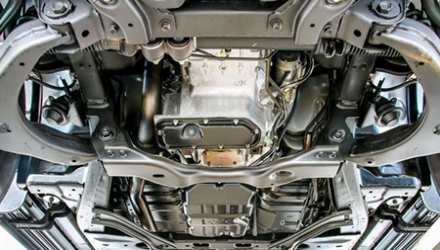Technology

Introduction to Sheet Metal Processing Materials
The selection of materials is a key step in sheet metal processing, as it directly impacts the performance and quality of the final product. Based on different application requirements and physical characteristics, the choice of materials in sheet metal processing ensures the versatility of the technique, allowing it to meet a wide range of industrial needs, from automotive manufacturing to the production of precision parts for electronic devices.
Common Sheet Metal Processing Materials:
1. Carbon Steel:
Carbon steel is one of the most commonly used materials in sheet metal processing due to its excellent strength, hardness, and machinability. It is widely applied in construction structures, automotive parts, and machinery equipment.
2. Stainless Steel:
Stainless steel is favored in sheet metal processing for its corrosion and oxidation resistance. It is especially suited for applications in food processing equipment, medical devices, kitchenware, and architectural decoration.
3. Aluminum:
Aluminum is popular in sheet metal processing for its lightweight, excellent conductivity, and corrosion resistance. Its applications range from aerospace to electronic product housings, making it an indispensable material.
4. Copper:
Known for its superior electrical and thermal conductivity, copper is widely used in sheet metal processing for manufacturing electrical equipment and electronic components. It also finds applications in piping systems and architectural decoration.
5. Brass:
Brass, an alloy of copper and zinc, is widely used in sheet metal processing due to its strength and aesthetic appearance. It is commonly used for producing decorative hardware, valves, gears, and musical instruments.
6. Galvanized Steel:
Galvanized steel is a common material in sheet metal processing, particularly suitable for outdoor structures and building materials requiring corrosion resistance. Its durability after galvanization makes it highly advantageous.
7. Titanium:
Titanium, with its high strength-to-weight ratio and excellent corrosion resistance, is particularly well-suited for the aerospace industry and medical implants. Its use enhances the value of sheet metal processing in high-performance applications.
8. Zinc Alloy:
Zinc alloy, known for its good casting properties and corrosion resistance, is suitable for manufacturing small precision parts, decorative items, and hardware. Its versatility in sheet metal processing makes it a cost-effective choice.
Considerations for Material Selection in Sheet Metal Processing
Material selection in sheet metal processing requires careful consideration of factors such as strength, weight, corrosion resistance, machinability, and cost. The performance of different materials directly affects the final product’s application and market competitiveness. Therefore, choosing materials for sheet metal processing must take into account not only physical properties but also their suitability for specific applications.
In conclusion, selecting the right material is crucial to the success of the sheet metal processing process. Whether it’s high-strength steel, lightweight aluminum, or highly corrosion-resistant stainless steel and titanium, each material plays an irreplaceable role in sheet metal processing. By choosing the appropriate material and fully utilizing sheet metal processing techniques, product performance and market competitiveness can be effectively enhanced.